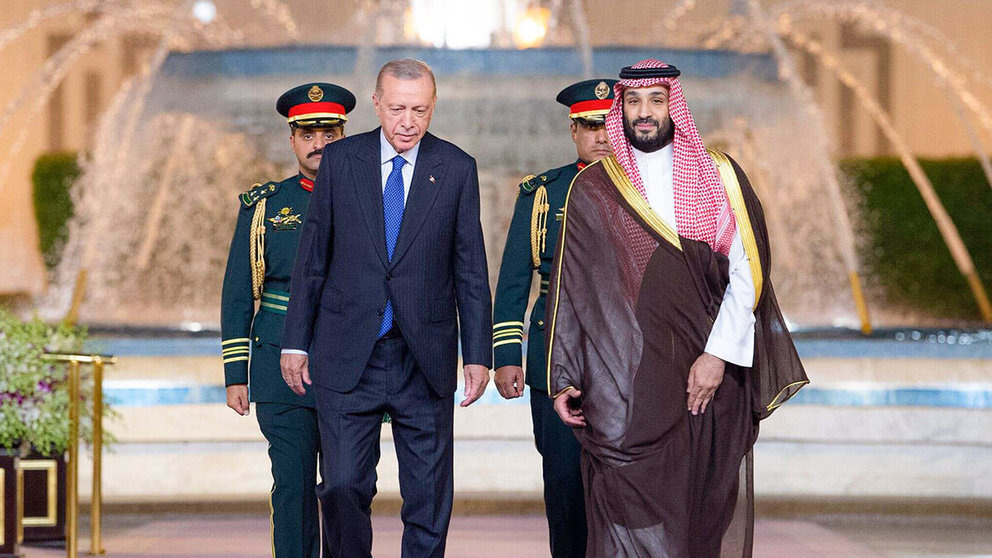Recep Tayyip Erdogan has led the Turkish delegation that has landed in Saudi Arabia to strengthen ties with the regional leader. Around 200 businessmen, investors and owners of companies of various sizes accompanied the Ottoman president on what was the first stage of a tour that will take Erdogan to the three Gulf States (Saudi Arabia, the United Arab Emirates and Qatar). His arrival on Monday evening was followed by meetings with Saudi ministers and officials, after which he was able to discuss with the crown prince a series of agreements in the energy, defence, research and development sectors, among others, which the two leaders initialled shortly afterwards.
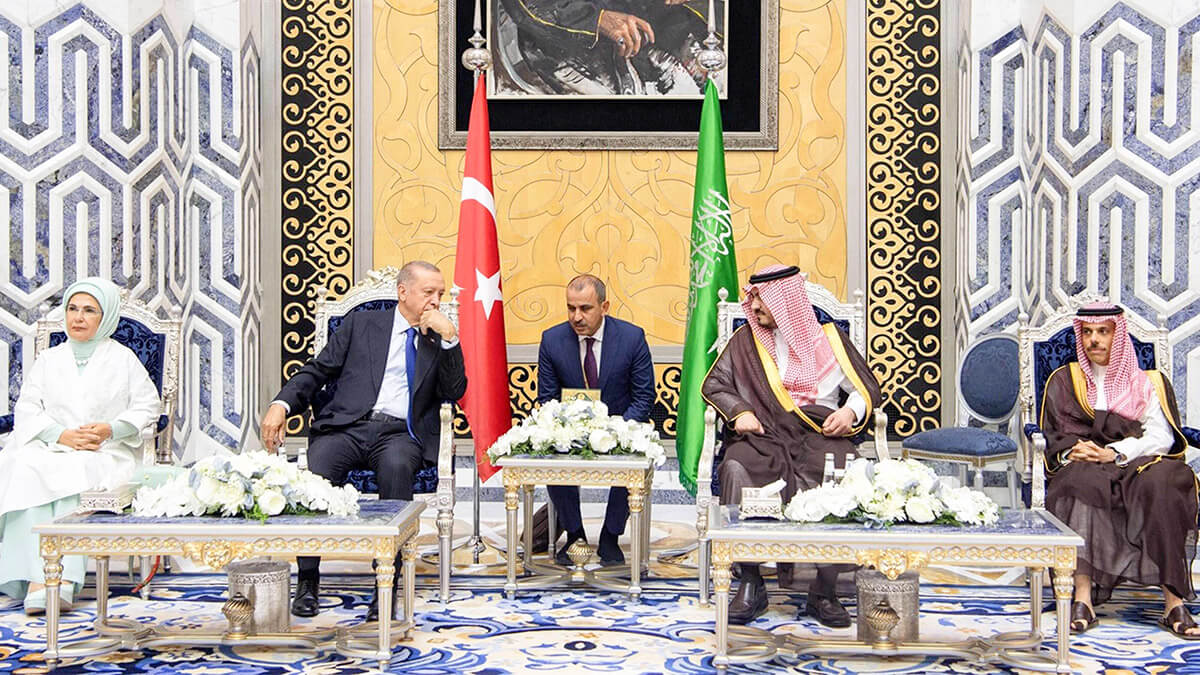
Another of the issues discussed during the meeting concerned two contracts between the Saudis and the Turkish company Baykar. Erdogan made it clear that the intention of this series of trips is “joint investment and commercial activities with these countries”. Turkey’s relations with the Gulf countries could hardly be bettered from the outset. Over the past two decades, the volume of trade between Turkey and these three countries has grown from $1.6 billion to $22 billion, a figure that Recep Tayyip Erdogan has referred to, assuring that “with the business forums that will be organised, we will look for ways to make this figure go much further”.
Saudi Arabia appears to be one of the most important among the list of partners with which Turkey wants to strengthen its ties. Last year alone, trade between the two countries reached 6.5 billion dollars, an amount that could be surpassed this year, since so far in 2023, the volume of trade has reached 3.4 billion dollars. The Turkish president also made reference to the sectors in which he is most interested in cooperating with the three countries he plans to visit during this tour: “Turkey will have serious investment opportunities in the defence industry, infrastructure and investments in superstructures in the three countries”.
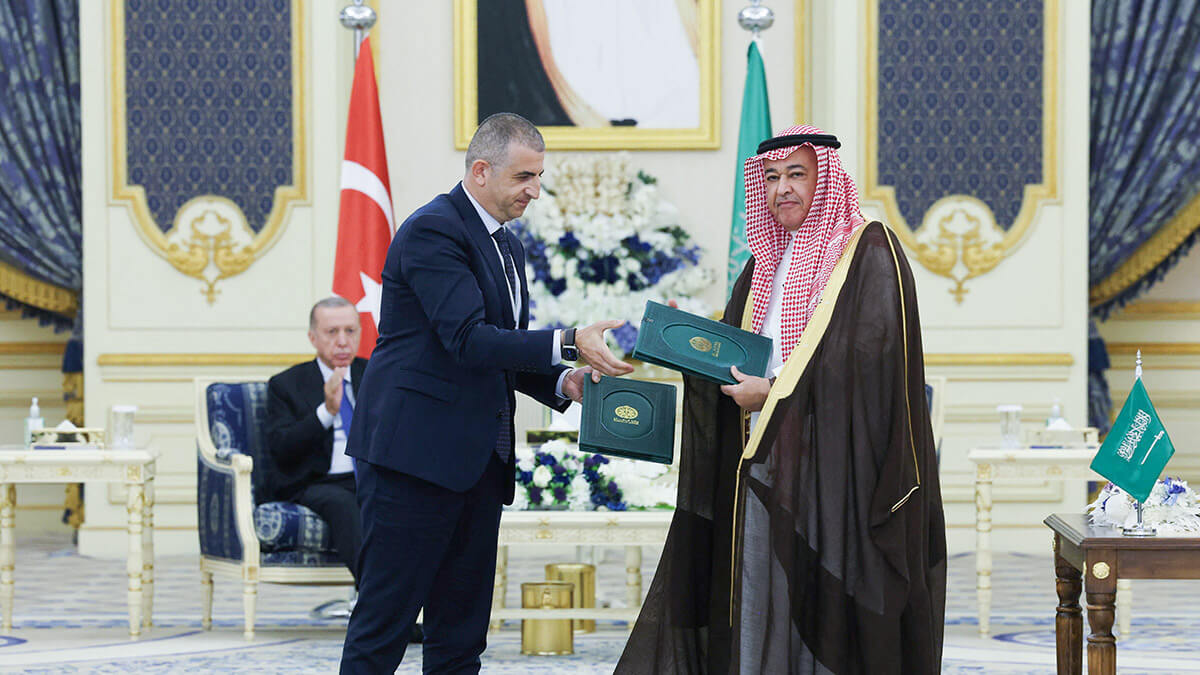
He also made it clear that all of them will be able to benefit from Turkish assets, in which he expects significant investment from its Gulf partners. The first of these moves was not long in coming, as Riyadh was after Turkish drones, for which it reached an agreement during the meeting between the leaders of the two countries. This acquisition was confirmed on Twitter by the Saudi defence minister, Khalid bin Salman al Saud, who assured that his country “will buy drones with the aim of improving the readiness of the Armed Forces and increasing their defence and manufacturing capabilities”.
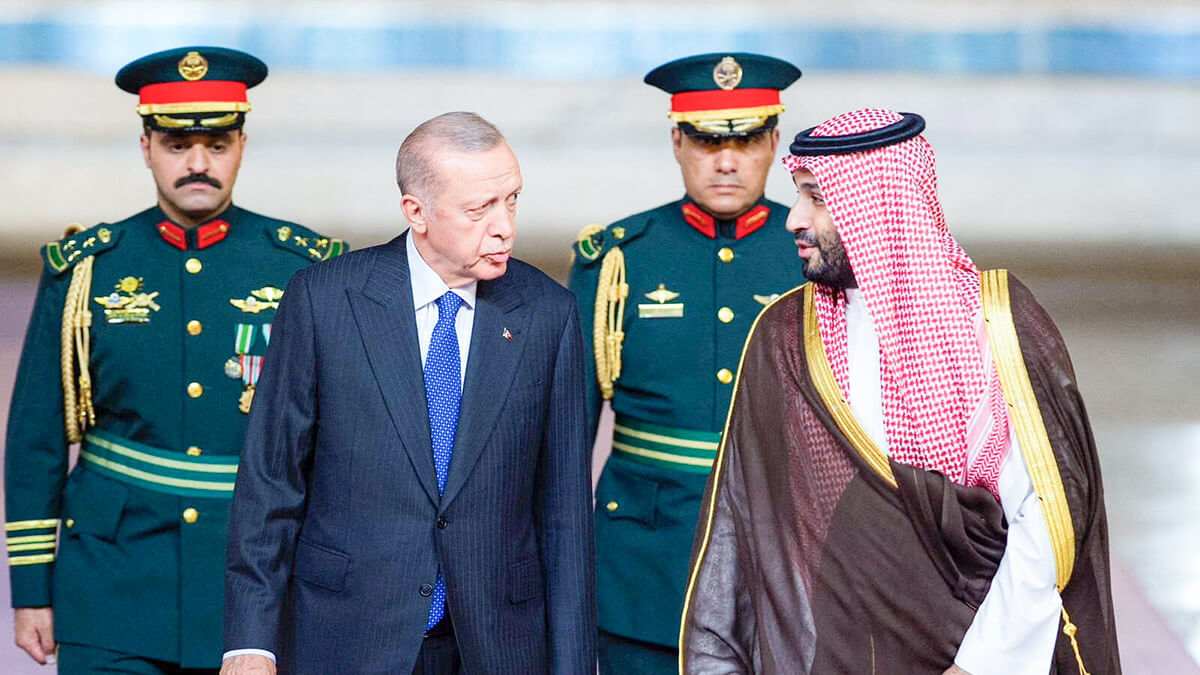
The Turkish delegation’s visit to the region has a much more delicate motivation than one might initially think. Rather than an opportunity – which is always the case when the partners are those mentioned – it is an obligation. Turkey needs to bring in a significant amount of money before November, when it will have to make debt repayments. To do so, it needs foreign direct investment and, above all, to increase its international foreign exchange reserves. To this end, establishing a “new era” with the Saudis, as the joint communiqué of the two administrations described it, is great news for Ottoman aspirations.
Erdogan is thus taking a step that may be accompanied by others that will continue to change the configuration of diplomatic relations in the region, which has been completely revamped since the restoration of ties between Arabia and Iran. This, coupled with Syria’s return to the Arab League, opens the door for Turkey to align its position with that of Bashar al-Assad’s country. Erdogan himself has assured that his country has never ‘closed the door’ to talks with the Syrian government, in an attempt to shift the focus away from a context that is still complicated for the Turks.
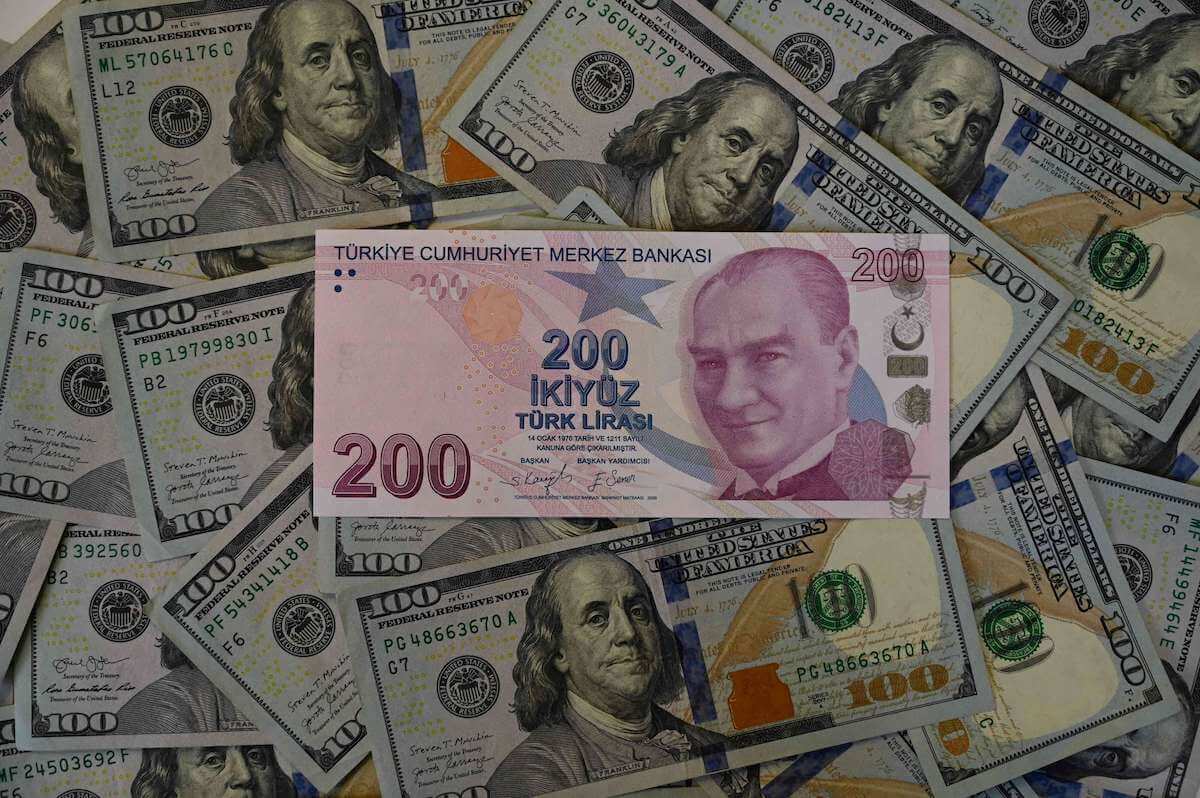
Recep Tayyip Erdogan’s government’s priority is to consolidate its position in the Middle East by increasing investment. Hence, this trip is key both for his country’s economic situation, which has been hanging by a thread for some time now, and for its influence in the region, which is precisely where the Gulf is at a good moment. If there is one thing the Turkish president has shown in his almost ten years at the helm of the country, it is that he knows how to move in extreme situations and take advantage of moments of change, such as the one the region is currently experiencing. It is now that Ankara can take advantage of a series of readjustments that could leave it in a great position of alliance with the Gulf countries.
Source : Atalayar


